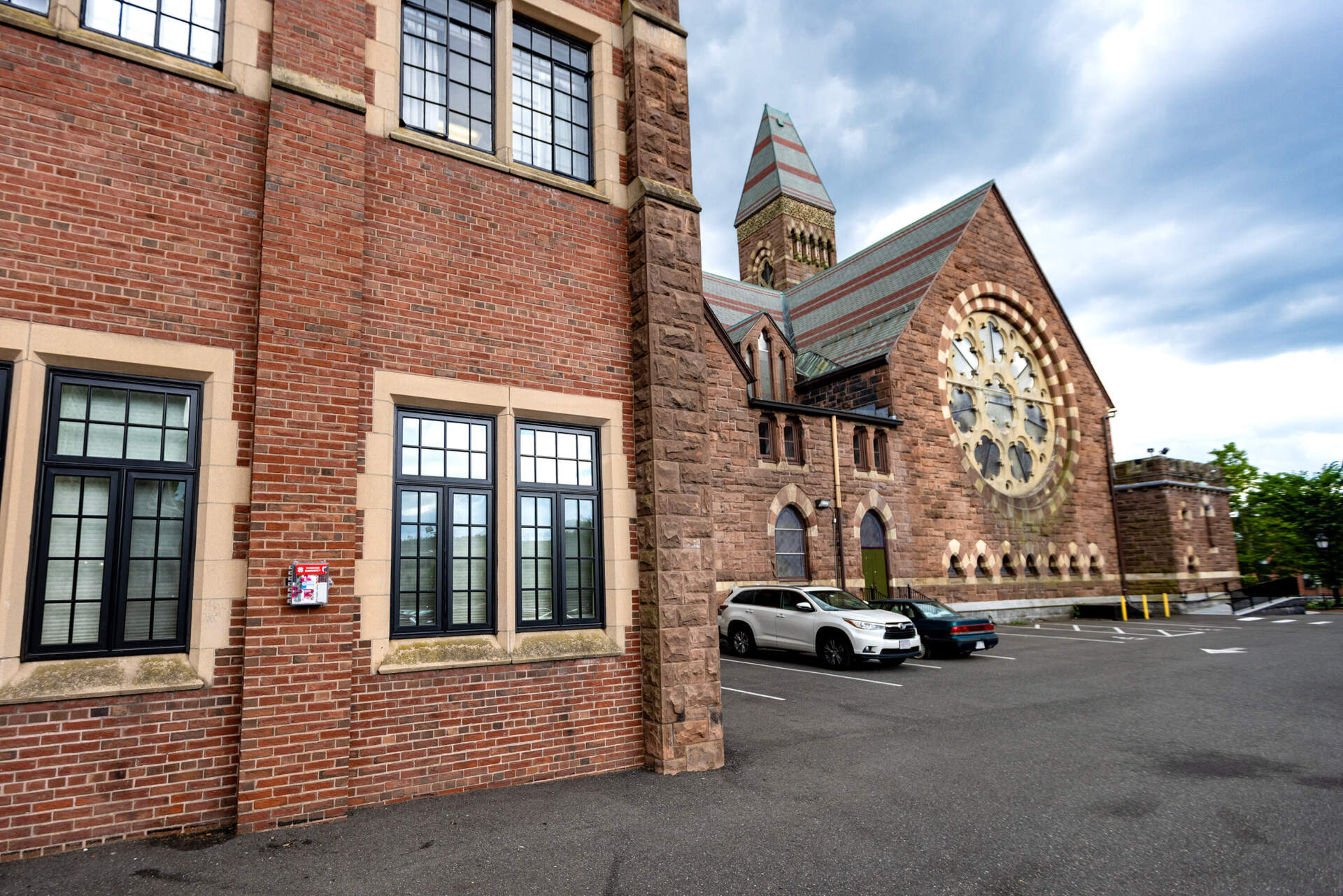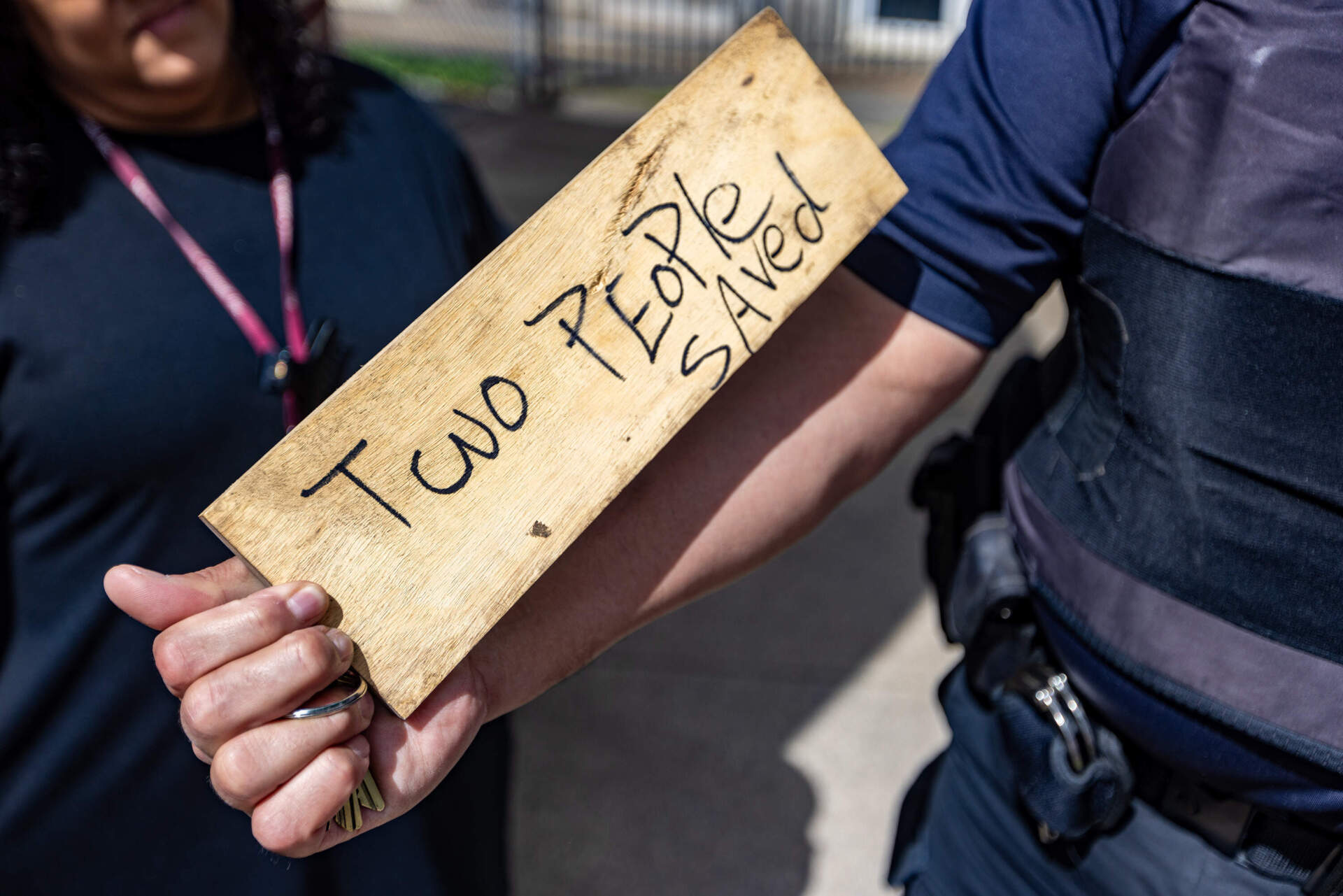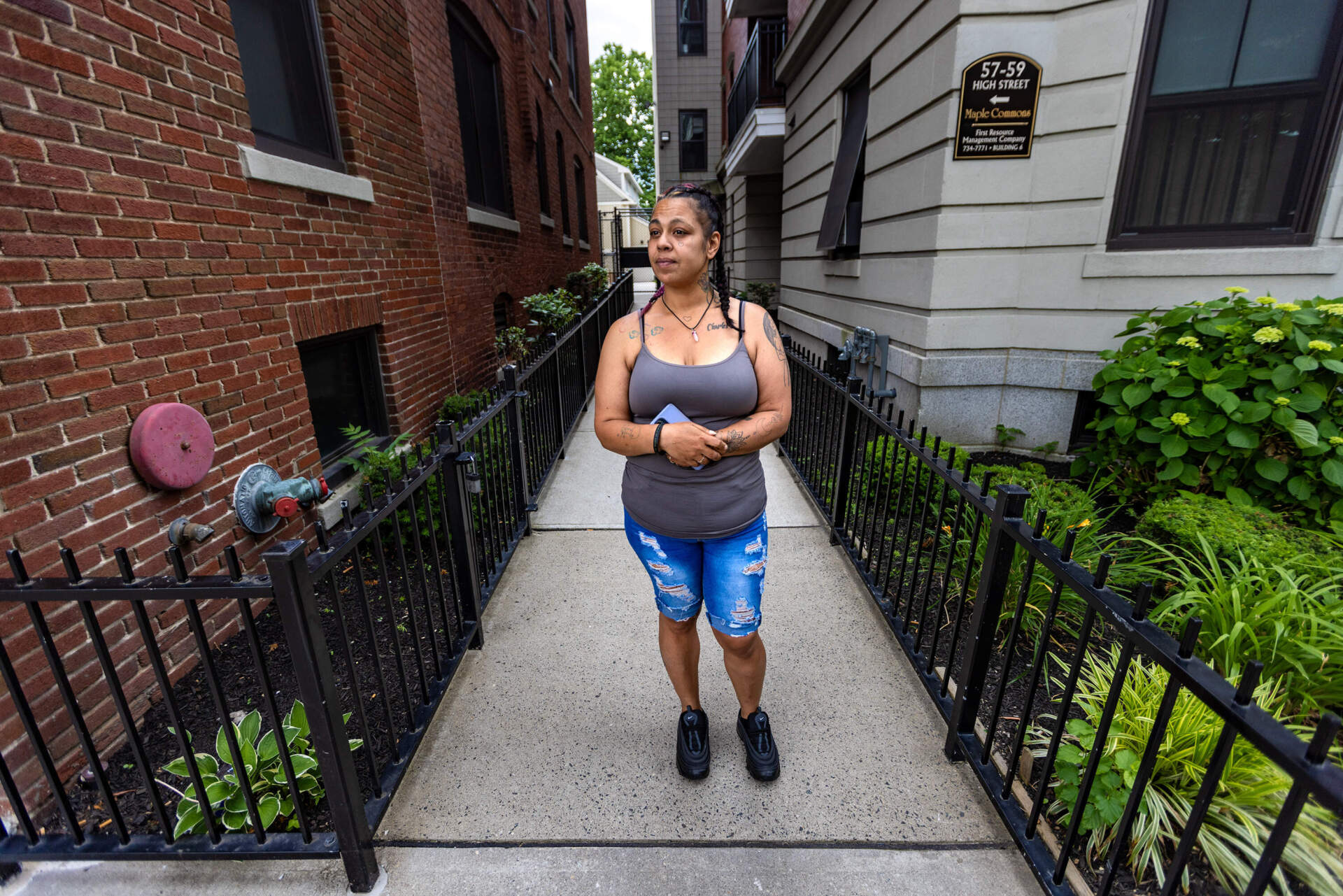Advertisement
Naloxone boxes credited with helping to reduce overdose deaths in Mass.
Resume
The young man in khaki pants with a scarf tied at this neck lay sprawled across the front steps of the South Congregational Church in Springfield. He could have been asleep. But Darleen St. Jacques, who runs a food pantry at the church, wasn’t sure. She leaned over and lifted one eyelid.
“I checked his pupils. They were pinpointed. That was it.” St. Jacques said. “I just Narcanned him. And he was OK, he came to.”
St. Jacques was ready because her church has a plastic box stocked with Narcan bolted to a wall outside. Narcan is one brand of naloxone, a drug that can reverse an opioid overdose. St. Jacques said she doesn’t hesitate to use it.
“You know, that’s someone’s daughter, son, sister, brother,” she said. “It’s a life. It's the gift of life. I’m just glad [the boxes are] out there. They should be all over.”
Data from the Massachusetts Department of Public Health shows naloxone reversed at least 4,639 overdoses in the last year and half, based on reports from recipients of nearly 200,000 free kits. Increasing access to naloxone is one reason public health leaders say overdose deaths in the state decreased by 10% last year, the largest single-year drop recorded in over a decade.
Health experts say the overdose antidote could be even more effective if it were available in more places.
In Springfield, anyone can walk through the South Congregational Church parking lot and grab naloxone, day or night. The three overdoses that St. Jacques and her staff have reversed since their unit was installed last year likely represent just a fraction of its impact. The box gets restocked daily by St. Jacques and her partners at the New North Citizens Council, a local social services organization.

Carlos Matias, an overdose education and naloxone distribution specialist with the council, drives around checking on and refilling seven boxes — known as NaloxBoxes — installed in areas considered overdose hot spots. Some building owners were hesitant, Matias said. He contacted five churches in downtown Springfield, including South Congregational, asking if he could install a NaloxBox.
“And every church refused, except that one,” he said.
Matias said staff at the other churches knew about the opioid crisis but didn’t understand how naloxone could make a difference. Some people may oppose making it more available, at least in their neighborhoods.
Herman Muckle, a Springfield resident, ran to one of the NaloxBoxes last week when he saw a person overdose. It was empty.
“Somebody had taken the Narcan, and they put it on the ground and they stepped on them,” he said.
Muckle ran back and pressed his knuckles into the man's chest, a technique used to try and wake people up or encourage them to breathe. He rubbed the man’s sternum until an ambulance arrived. Muckle said the man survived.
Advertisement
The empty box Muckle found has been full at other critical moments. It's affixed to a brick building where the Hampden County Sheriff’s Office offers classes in anger management, parenting and GED prep. Dan Cruz, the security supervisor, said the NaloxBox fits a mission of the Sheriff’s Office — to help people struggling with addiction. He held up a piece of a wooden board to prove his point.

“One time, this is what I found right on top of the box,” Cruz said, reading a message scrawled on the wood in what looked like black marker. It said, "Thank you life saver,” on one side and on the other, “two people saved.”
Cruz said he took the board inside to show his colleagues. It made him think: “What we’re doing here is working.”
Each NaloxBox is labeled Opioid Rescue Kit in big red block letters. There are graphic instructions about how to use naloxone, but Celinda Cloud doesn’t need them anymore. She lives across the street from a box on a street where overdoses are all too common. Cloud has retrieved the nasal spray devices several times, for strangers, to reverse what could have been another fatal OD.
“Their life still matters, regardless that they're addicts,” she said. “They’re still people at the end of the day.”
Five years ago, even progressive cities in Massachusetts balked at installing naloxone boxes in public. Now, an online public health map shows 134 of them tacked to libraries, college and community health centers and public housing.

Adoption is still slow in some places. Last August, the state legislature awarded the MBTA money to place naloxone boxes at Red Line T stops. A spokesman said the T hopes to get them up this summer after considering many issues including placement, safety and labor.
The state helps pay for the boxes and distributes free naloxone to community groups like the New North Citizens Council. Monitoring and restocking the boxes is a calling for the organization’s Matias. He’s in recovery and lost a brother to an opioid overdose.
“Massachusetts is one of those places I say, ‘Thank you,’ Matias said, “because people like me, they get a second chance.”
This segment aired on June 12, 2024.
